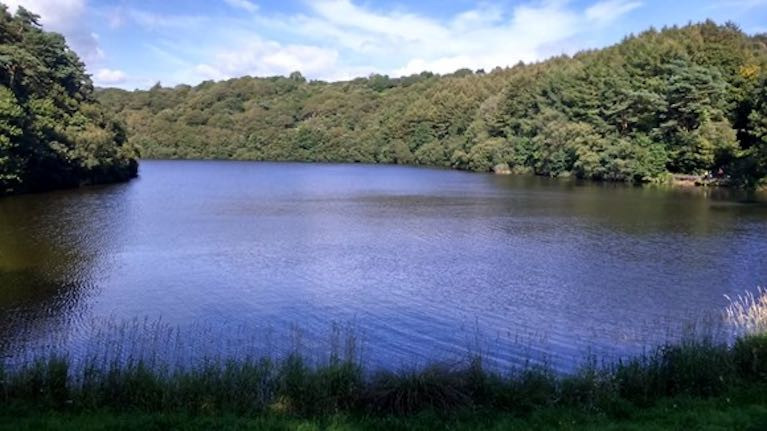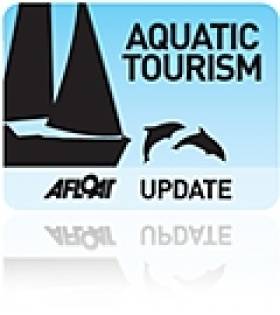Displaying items by tag: Aquatic
Welsh Government 'Access to Water' Grant Brings Paddlesports to Reservoir
The recent announcement of the development of the Swiss Valley reservoirs in Carmarthenshire in Wales has been given a boost with the confirmation of an ‘Access to Water’ grant from Welsh Government, worth £121k, that will enable visitor access to the Lower Lleidi reservoir for paddle sports and angling.
The funding will realise plans to bring back a range of paddlesports to the reservoir, including stand-up paddle boarding, canoeing and kayaking. It will also enable bank angling through the creation of recreational zones. A range of improvements to the surrounding infrastructure are also planned to include a boat wash for biosecurity and the creation of paths and a pontoon that allows easy access to water for people of all abilities, and the refurbishment of toilet facilities.
Developing the Swiss Valley Reservoirs is expected to attract 90k+ visitors a year to the site, in line with Covid19 regulations. The ‘Access to Water’ funding is an important milestone in achieving shared ambitions for the site, and to support the funding application, a survey of local canoe clubs, outdoor activity providers and anglers was conducted which found a strong demand for access to the water for their activities. The feedback was that this is likely to generate a huge amount of interest from clubs and providers given it’s ideal geographical location. The community adoption scheme means that local people are offering to invest their own time to help look after this jewel of a community asset, and care for it into the future.
The project is well placed to support the delivery of The Wellbeing of Future Generations Act (Wales) 2015, which requires public bodies in Wales to think about the long-term impact of their decisions, to work better with people, communities and each other, and to prevent persistent problems such as poverty, health inequalities and climate change. Whilst Welsh Water is not a public body, it is committed to working in partnership with Llanelli Rural Council, Natural Resources Wales and Canoe Wales in the spirit of the legislation.
Minister for Environment, Energy and Rural Affairs, Lesley Griffiths, said: “This is an excellent example of a scheme which increases opportunities for outdoor recreation and provides safe access to water for people of all abilities. The development of these reservoirs will enable local people and visitors to gain more enjoyment from this beauty spot in line with covid19 guidelines and help to support a green recovery in Wales. I hope the success of this project will encourage development of many more similar opportunities over the coming years.”
Welsh Water Chief Executive Peter Perry said, “Access to blue space is proven to be positively associated with health and wellbeing. Swiss Valley is an important asset for the local community and visitors alike. This funding is a major milestone in our efforts to bring this cherished community asset back to its former glory and make it more accessible, for the health and wellbeing of everyone.”
Jen Browning, Chief Executive of Canoe Wales, the national governing body for paddlesport in Wales, added, “Over the past eight months, we have seen an unprecedented amount of demand for canoeing, kayaking and stand-up paddleboarding, but the limited number of venues in Wales suitable for new paddlers has always been a major obstacle. This funding will ensure that Swiss Valley can play an enormously important role in making it possible for people of all abilities to enjoy the water, and for many to discover a passion for paddlesport and develop a deep connection with the outdoors.”
Dave MacCallum, Specialist Advisor for Water Access & Recreation at Natural Resources Wales and Chairman of NAFW Access to Water Sub-Group said: “We are delighted to have been a part of this important collaboration which will open up these new waters for responsible, inclusive recreation in South West Wales. NRW is committed to doing all we can to enable more people to enjoy Wales’ countryside more easily and responsibly – to take advantage of the many health and wellbeing benefits that getting outside can bring. Benefitting from bespoke disabled paddle-sport access facilities and a Biosecurity station promoting and enabling the Check Clean Dry initiative, the Swiss Valley reservoir project paves the way for future access to Welsh still waters so that current and future generations can continue to enjoy their visits to some of Wales’ most spectacular landscapes”
Llanelli Rural Council Leader, Cllr Tegwen Devichand said “the funding is marvellous news for the community and will enable the council to develop its plans for the reservoir in earnest. Much of the preliminary work associated with the first phase of infrastructure improvements can now get underway, in fact some work has commenced already. The physical adaptations to refurbish the toilet block, visitor car park and access to the water to facilitate paddle sports and the angling fraternity is scheduled to be completed by March 2021, but work won’t stop there. Moreover, the community response to our plans for the reservoir has been overwhelming; the council has received a great deal of local and regional support and a number of interest groups and individuals have come forward to help us deliver our plans as well as to offer their services. This is greatly appreciated and bodes well for the future.”
British Marine Federation Launch Scotland's Marine Tourism Strategy
#aquatictourism – The British Marine Federation is launching a Marine Tourism Strategy in March at the Scottish Tourism Week National Conference. Over 500 decision makers and key players in the tourism industry will be attending the event.
By 2020, the BMF say they want Scotland to be: "A marine tourism destination of first choice for high quality, value for money and memorable customer experience delivered by skilled and passionate people."
The Marine Tourism Strategy is an initiative led by a working group of industry leaders and user groups together with public agencies and enterprise bodies to focus on the sustainable growth of Scotland's marine leisure sector. 'With your help we can build the economic benefits of marine tourism for Scotland as a whole, and for all of our individual businesses, teams, employees and families' says BMF.
Scotland's marine environment is one of its crown jewels and encompasses some of the world's most beautiful and varied boating waters. Whether visitors seek adventure, wildlife, family boating experiences, day or extended visits, coastal, offshore or inland waters, Scotland's marine offer is complete, varied and of the highest standard.































































